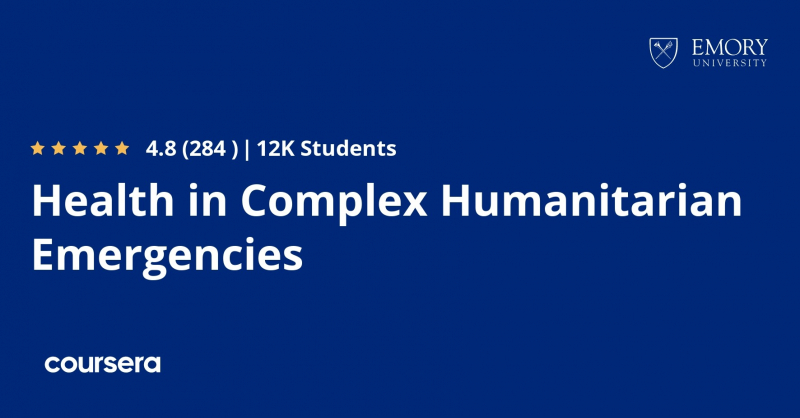Health in Complex Humanitarian Emergencies
The Center for Humanitarian Emergencies is a collaboration between the CDC's Emergency Response and Recovery Branch and the Rollins School of Public Health that promotes global collaboration, research, and evidence-based training to help people affected by humanitarian crises. The technical and organizational principles that underpin the planning, implementation and evaluation of health initiatives for acutely displaced persons in developing nations are covered in this course. The focus is on refugees living in camps. In the context of an international relief operation, the course covers modules on assessment, nutrition, epidemiology of key health concerns, surveillance, and program management.
Learners will be able to characterize a complicated humanitarian disaster in terms of magnitude, person, time, and location after completing this course, as well as compute basic epidemiological metrics. At the end of this course, you will be able to assess the strengths and limits of epidemiological data in the context of CHE.
In a CHE, you can develop public health programs and strategies that are sensitive to the community's diverse cultural values and traditions, identify internal and external problems that may affect the delivery of essential public health services, and identify the various technical areas in a public health response.
This course offers:
- Level: beginner level
- Duration: 8 hours
- Rate: 4.8
- Language: French, Portuguese (Europe), Russian, English, Spanish
- Link: coursera.org/learn/health-che









